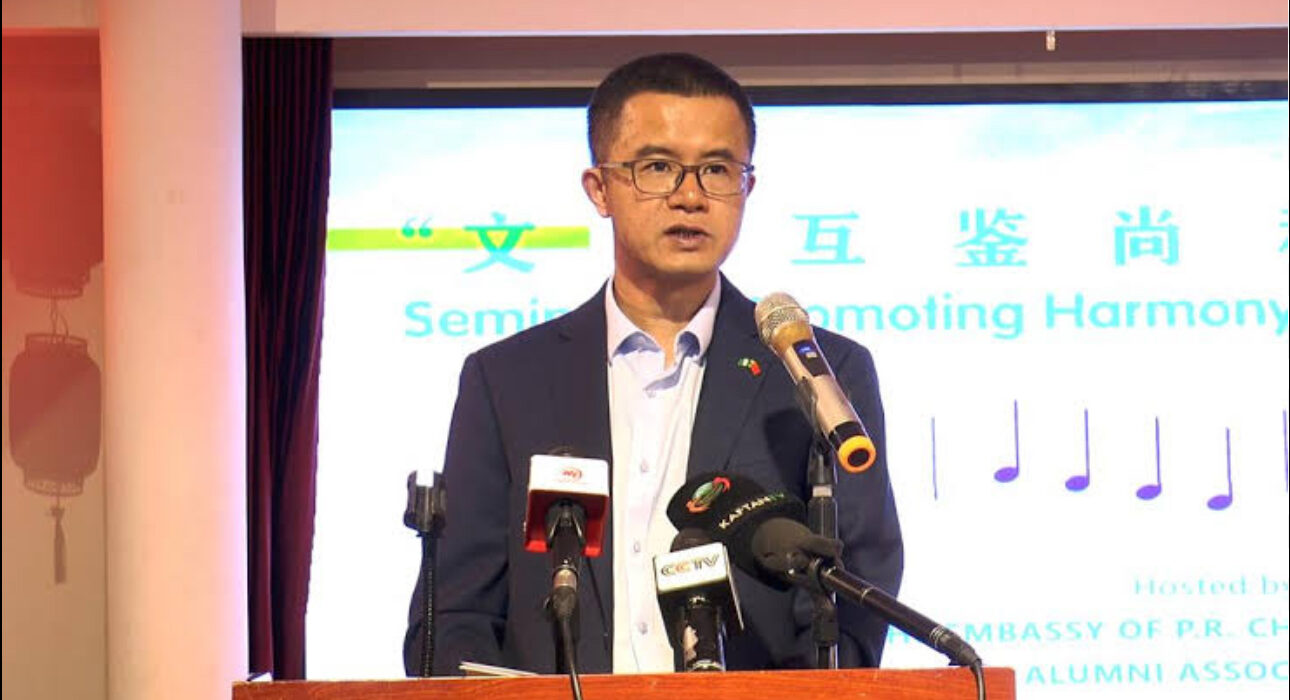China Reaffirms Commitment to Nigeria’s Infrastructure Development, Says Zhang Yi

The Chinese government has reiterated its unwavering commitment to supporting Nigeria’s infrastructural development, signaling a renewed push to deepen bilateral ties between the two countries. Zhang Yi, China’s Charge d’Affaires at the Chinese Embassy in Nigeria, made the declaration during an engagement in Abuja on Monday.
According to Zhang, China views Nigeria as a strategic partner in Africa and remains fully committed to contributing to the country’s infrastructural advancement, particularly in critical sectors such as transportation, energy, and industrial development.
Zhang highlighted the successes of existing partnerships, pointing to several ongoing projects handled by Chinese firms, including rail construction, road networks, power plants, and port infrastructure.
He noted that China’s contributions are not just financial, but also technical, with a focus on knowledge transfer, job creation, and long-term sustainability.
“Nigeria is a country with great potential, and infrastructure is the backbone of its development. China is proud to be part of Nigeria’s transformation journey,” Zhang stated.
He further emphasized that China’s involvement in Nigeria’s infrastructural sector aligns with President Bola Tinubu’s “Renewed Hope Agenda,” which prioritizes economic growth through structural development.
Some of the major Chinese-backed projects in Nigeria include:
• The Lagos-Ibadan and Abuja-Kaduna railways, both completed and operational.
• The Lekki Deep Seaport, now a vital trade gateway.
• The Zungeru Hydropower Plant, contributing to the national grid.
• Ongoing discussions around expansion of rail lines, industrial zones, and energy distribution systems.
Zhang also mentioned that China is ready to support new initiatives proposed under the current administration, particularly in the areas of transportation corridors and digital infrastructure.
Beyond physical construction, Zhang reaffirmed China’s readiness to offer concessional loans, grants, and technical support through institutions like the China Exim Bank and China Civil Engineering Construction Corporation (CCECC).
He noted that China would continue to explore financial frameworks that ease the burden of capital repayment while ensuring project continuity.
“We are committed to fair financing models and sustainable development goals. Our cooperation is long-term and people-centered,” Zhang assured.
The Chinese envoy also touched on the importance of strengthening cultural, educational, and technological exchanges between both countries. He cited ongoing scholarship programs, vocational training initiatives, and China-Nigeria friendship activities as critical to fostering deeper understanding and mutual benefit.
He reaffirmed that China’s Belt and Road Initiative (BRI) continues to provide a solid platform for collaboration and development between African countries and China, with Nigeria playing a key leadership role.
Zhang’s remarks come at a time when Nigeria is looking to diversify its international partnerships and attract more infrastructure investment to stimulate economic growth, job creation, and trade competitiveness. China, already one of Nigeria’s largest bilateral lenders and project partners, remains pivotal in that equation.
Observers say the Chinese government’s renewed commitment is likely to boost investor confidence and accelerate the delivery of key projects under Nigeria’s national development plan.
With both countries reaffirming their shared interests, attention will now turn to how quickly these promises will translate into completed projects and lasting benefits for Nigerians.
For many, China’s continued involvement offers hope for tangible improvements in transportation, energy access, and urban development.
As Zhang Yi summed it: “Our friendship with Nigeria is built on trust, cooperation, and a shared vision of progress. China will continue to stand with Nigeria in its journey to prosperity.”








